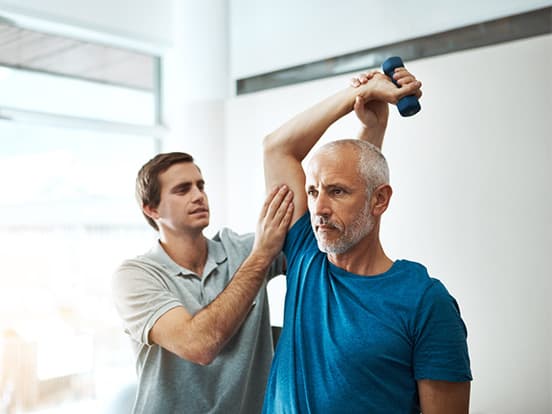Preparing for the cold and flu season
How you can help your body's defenses
Clinically reviewed by Macarena Staudenmaier
Written by Nick Thompson
Published on 28/11/2023
The winter months mean one thing when it comes to health in the UK: cold and flu cases. But what causes this perceived rise? And what can we do to protect ourselves? We'll explain everything in this article, and help provide some tips to keep you up, about, and healthy over the winter.
We’ll start by taking a look at what might cause the spread of cold and flu in the colder months:
Flu-causing viruses are likely to be more stable in colder, drier air. Meaning they can linger for longer, increasing the risk of them spreading.
There’s evidence to suggest our immune systems can be weakened in colder temperatures, and if we don't have much exposure to sunlight, our immune-boosting vitamin D levels can take a hit.
We're spending more time indoors with other people. Whether in social situations or at work, we're crowding close to each other, which helps boost the spread of respiratory viruses.
Viral shedding (spreading infectious germs) with a cold can start before symptoms are visible, so people can be contagious without knowing.
All of this suggests that whilst the wintry weather doesn't cause illness, it can contribute to the spread of colds and flu.
Feel like you're coming down with something?
Avoid the waiting room, talk to a GP from the comfort of your home. 24/7 access through Simplyhealth, with plans starting at £20 a month.
What can we do to avoid the winter illnesses?
Eat a balanced diet
Your immune system is the body's defence mechanism against germs and bugs; a nutritious diet is integral to its effectiveness. You want enough vitamins and minerals, like vitamins A, C, D, and zinc, to ensure you can put up a good fight. In most cases, you can get these from a well-balanced diet, including fruit and vegetables, but when it comes to vitamin D, you may need a supplement during the winter months, as the primary source of this is sunlight on the skin.
Stay on top of your vaccines
The flu vaccine can help protect against the main types of flu viruses and protect those at risk of getting seriously ill. Those who are vulnerable can get the flu jab for free on the NHS, including anyone 65 and over. If you aren't in a vulnerable category, you can still pay to get the jab through your local chemist or pharmacy.
Wash your hands and clean regularly
Cold and flu can be transmitted through coughing and sneezing, with the droplets containing the germs landing on surfaces. If you touch those surfaces and then touch your face, you risk those germs entering your body. Protection starts with washing your hands with soap and water, using hand sanitiser, and probably the hardest of all, avoiding touching your face.
Avoid close contact with anyone who's showing symptoms
This one may sound simple and obvious, but if you go into the office and someone is coughing and sneezing, it's best not to be near them. Cold and flu are respiratory illnesses; close contact with that person will increase your risk of catching the germs. If you're the one coughing and sneezing, try staying home if possible. It'll help you recover while stopping the spread.
Try to keep warm
Ensure that your outfit is appropriate for the weather when going outside, and, if possible, heat your home to a comfortable temperature. Ideally, this is at least 18˚ C in your bedroom.
There is no guaranteed method to avoid getting colds or the flu, but you can help protect yourself. Getting enough sleep, exercising regularly, and having good general hygiene can go a long way. To put it into an easy-to-follow list:
Exercise weekly
Avoid touching your face
Try to get 8 hours of sleep a night
Make sure your vaccines are up-to-date
Wash your hands or use hand sanitiser regularly
Eat a balanced diet with a variety of fruit and vegetable
If you can, avoid crowded places, or being near anyone displaying symptoms

Reviewed by Macarena Staudenmaier
Dr. Macarena Staudenmaier, M.D., MSc is Simplyhealth's Head of Clinical Product and Operations. Macarena has worked in the healthtech industry for over four years and has experience in development and validation of innovative clinical products.
She has experience in internal medicine and a Masters in Global Health and Development from UCL. Macarena is passionate about women's health and the role technology has in addressing pressing issues in public health.
You can connect with Macarena via LinkedIn.
Written by Nick Thompson
Nick Thompson is a Content Marketing Manager at Simplyhealth and has been at the company for over five years. He specialises in content creation in the health and wellbeing space, having written and overseen a number of articles in our Healthy Living Hub.
You can connect with Nick via LinkedIn.
You might also be interested in...

Healthy Living Hub
Our collection of articles and resources focused on your health and well-being,covering topics like women's health, online GP services and more.

Health treatments explained
Find out more about the health treatments covered on our plans, including what's included in the counselling and advice support line service.
This material may contain links to other websites operated by third parties. It is the responsibility of third parties to ensure such material and websites comply with all relevant laws and regulations. To the maximum extent permissible by law Simplyhealth disclaims all responsibility for such websites.